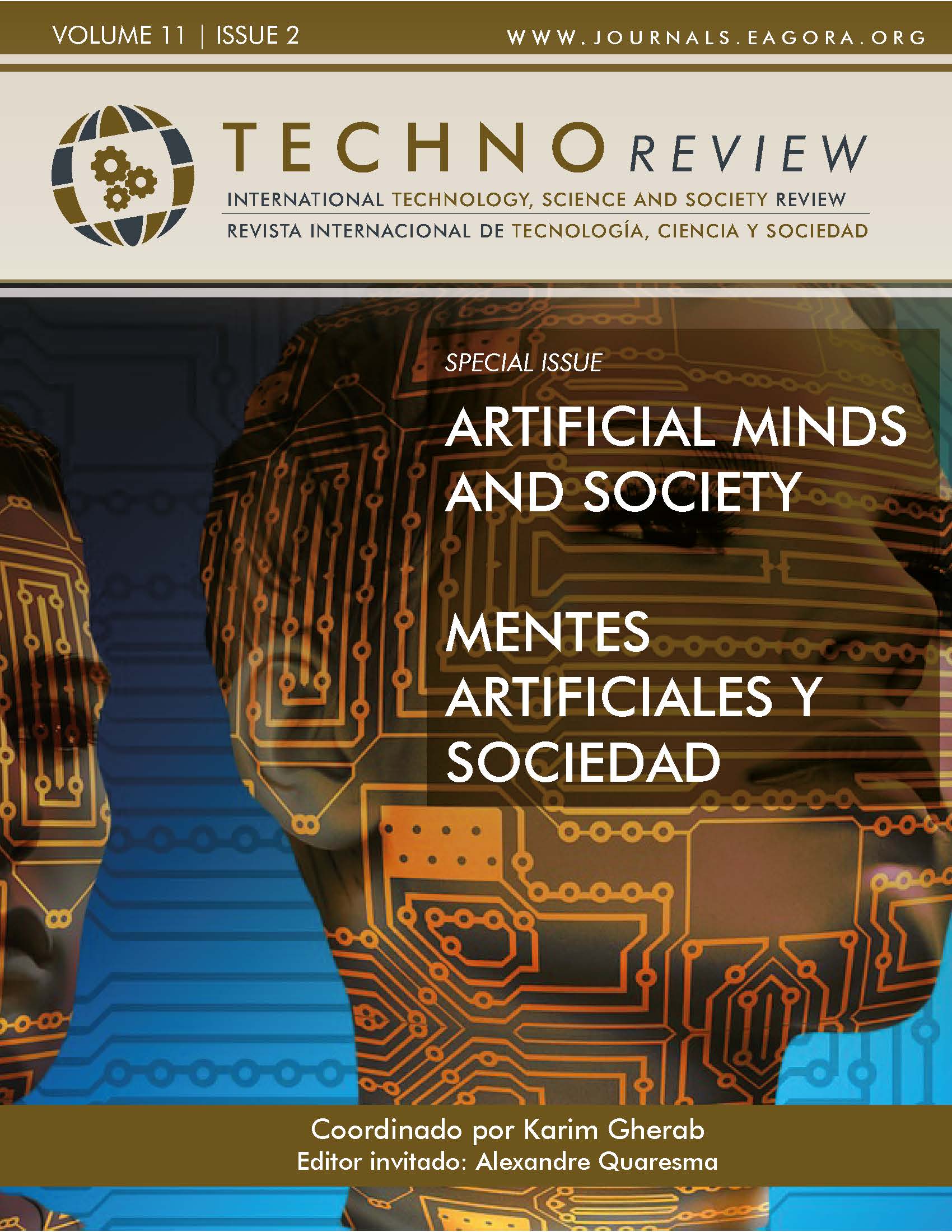Artificial Intelligence for Feeling Analysis in Video Games
DOI:
https://doi.org/10.37467/revtechno.v11.3823Keywords:
Visión artificial, machine learning, design thinking, lean start-up, scrum, Inteligencia ArtificialAbstract
Students from the State Distance University of Costa Rica develop video games then the feelings they transmit are evaluated. The objectives of this research are focused on determining a solution that, through artificial intelligence, automates its review. For this reason, relevant concepts are addressed, those that are related to Artificial Intelligence and its domain area: “Machine Learning”. Regarding the methodological framework, it is made up of agile methodologies that through its tools allow establishing a business plan and a solution model. Finally, conclusions and recommendations are detailed according to the results of the analysis.
References
Bagnato, J. (2020, 25 junio). Convolutional Neural Networks: La Teoría explicada en Español. Aprende Machine Learning. https://bit.ly/2YeTADy
BBVA. (2022, 21 agosto). ¿Qué es la computación afectiva?. OpenMind. https://www.bbvaopenmind.com/tecnologia/mundo-digital/que-es-la-computacion-afectiva
Fridman, L. (2019, 11 enero). Deep Learning Basics: Introduction and Overview. YouTube. https://www.youtube.com/watch?app=desktop&v=O5xeyoRL95U
IBM. (2021, 12 agosto). Machine Learning. IBM Cloud Education. https://www.ibm.com/pe-es/cloud/learn/machine-learning
Kuksov, I. (2019, 2 diciembre). Sentido y sensibilidad: ¿debería la IA dominar las emociones?. Kaspersky. https://www.kaspersky.es/blog/emotional-ai/20735/
Leitão, J, Meleuman, B., Van de Ville, D., & Vuilleumier, P. (2020, 12 noviembre). Computational imaging during video game playing shows dynamic synchronization of cortical and subcortical networks of emotions. PLoS Biol. https://doi.org/10.1371/journal.pbio.3000900 DOI: https://doi.org/10.1371/journal.pbio.3000900
Martens, J. (2021, 12 abril). ¿Qué es la inteligencia artificial? Microsoft Docs. https://onx.la/1ce4d
Martens, J. (2022, 11 abril). Aprendizaje profundo frente a aprendizaje automático en Azure Machine Learning. Microsoft Docs. https://n9.cl/dc1uq
Ochoa, M. (2021, 25 septiembre). Machine learning. Qué es Automated Machine Learning: la próxima generación de Inteligencia Artificial. ITMasters. https://bit.ly/3FvSxCy
OpenCV. Machine Learning Overview. (s. f.). Opencv. Recuperado 10 de octubre de 2021, de https://docs.opencv.org/master/dc/dd6/ml_intro.html
SPRH LABS. (2019, 21 marzo). Understanding Deep Learning: DNN, RNN, LSTM, CNN and R-CNN. Medium. https://medium.com/@sprhlabs
Torralba, P. P. (2021, 21 mayo). Qué son las Redes Neuronales Convolucionales. Thinking for Innovation. IEBSchool. https://www.iebschool.com/blog/redes-neuronales-convolucionales/
Molina, D. (2022, 15 abril). Qué es el Modelo Canvas y ejemplos de Canvas reales. IEBSchool. https://www.iebschool.com/blog/que-es-el-modelo-canvas-y-como-aplicarlo-a-tu-negocio-agile-scrum
UNED (2021). ¿Qué es Uned Games? (s. f.). UNED Games. Recuperado 13 de octubre de 2021, de https://www.unedgames.com/que-es-uned-games
Downloads
Published
How to Cite
Issue
Section
License
Those authors who publish in this journal accept the following terms:
- Authors will keep the moral right of the work and they will transfer the commercial rights.
- After 1 year from publication, the work shall thereafter be open access online on our website, but will retain copyright.
- In the event that the authors wish to assign an Creative Commons (CC) license, they may request it by writing to publishing@eagora.org








